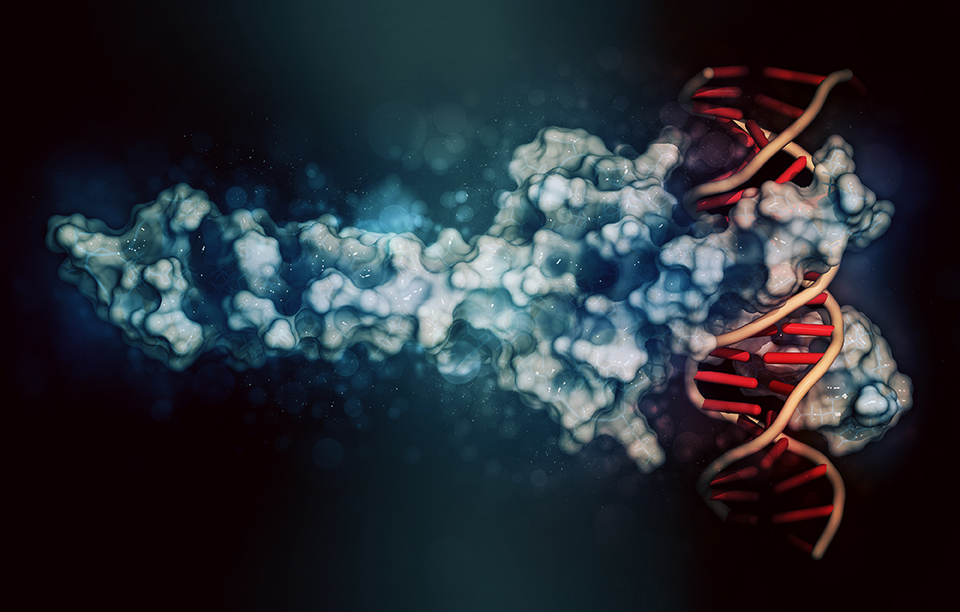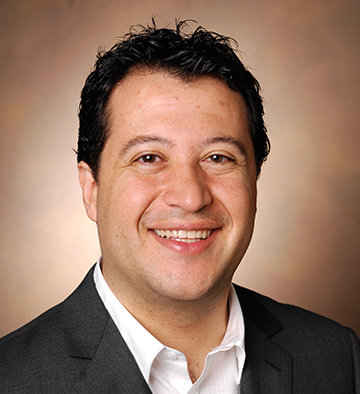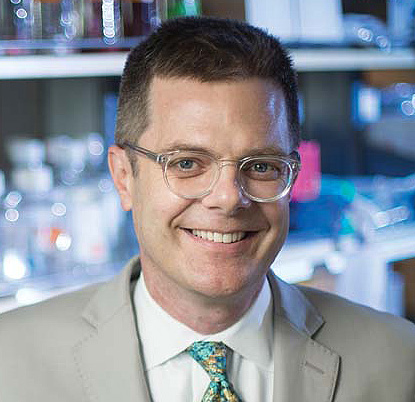Research, News & Discoveries
-

Stanley Cohen, Nobel laureate, dies
By Lorena Infante Lara Stanley Cohen, Nobel laureate, posing next to a portrait of himself. Dr. Stanley Cohen, Vanderbilt University emeritus faculty and Nobel Prize winner, passed away Wednesday morning. He was 97 years old. Born in Brooklyn, New York, in 1922, Cohen was the… Read MoreFeb. 5, 2020
-

Receptor modulators chart new courses out of depression
By Amanda N. Johnson “Major depression is one of the most common mental disorders in the U.S. According to the National Institute of Mental Health, approximately 7% (17.3 million) of American adults had at least one major depressive episode in 2017.” (Tadamichi, stock.adobe.com) Existing drug treatments relieve mental illness for… Read MoreFeb. 4, 2020
-

Breaking up MYC-WDR5 to counter cancers
By Suneethi Sivakumaran C-MYC, a variant of MYC, and MAX bound to DNA. (Molekuul.be, stock.adobe.com) Cancers are complex and diverse in nature, assailing the human body through different mechanisms. Cancer cells outsmart normal cells through myriad mechanisms, including sustained proliferation, insensitivity to growth suppressors, and resistance to cell… Read MoreFeb. 4, 2020
-

Lopez lands NSF Career Award
Carlos Lopez (Biochemistry) has received a National Science Foundation Faculty Early Career Development (CAREER) award, the most prestigious NSF award that supports early-career faculty. Lopez’s research attempts to parse out the role of noise and randomness in determining cell fate. Read MoreJan. 31, 2020
-

Protein research seeks to induce tumor regression
Jan. 29, 2020, 2:23 PM by Bill Snyder MYC is a family of three related proteins that are overexpressed in cancer and which contribute to an estimated 100,000 cancer deaths annually in the United States. Efforts to block MYC directly have failed. Fortunately, these proteins have an Achilles’ heel —… Read MoreJan. 30, 2020
-

Study links neural circuit with impaired social function
Jan. 29, 2020, 3:14 PM by Kelsey Herbers Stimulating neural activity between the amygdala and the nucleus accumbens — a brain region associated with pleasure — impairs social function even though mice find the stimulation rewarding, a new study published by Vanderbilt researchers in The Journal of Clinical Investigation… Read MoreJan. 30, 2020
-

A new contributor to atherosclerosis
Jan. 27, 2020, 9:00 AM by Leigh MacMillan Free radicals produced during oxidative stress react with membrane fatty acids to yield highly reactive lipid aldehydes, which can modify proteins and cause cellular or tissue damage. The aldehyde HNE has been shown to modify high-density lipoprotein (HDL, the so-called good cholesterol)… Read MoreJan. 30, 2020
-

Antibody isolated at VUMC found to halt dengue virus
Jan. 23, 2020, 9:17 AM by Bill Snyder Using part of an antibody isolated at Vanderbilt University Medical Center that “broadly neutralizes” the human dengue virus, biologists at the University of California San Diego and colleagues have disarmed the mosquito that transmits the disabling and potentially deadly tropical infection. Reporting in… Read MoreJan. 23, 2020
-

Targeting NA to protect against lethal avian flu infection
By Sohini Roy New research can lead to improved vaccines against the flu, including strains such as H7N9 and antiviral-resistant strains. Image by Heather Hazzan, SELF Magazine. Published under a CC BY 2.0 license. Obtained from Flickr. Asian lineage avian influenza virus (H7N9) is… Read MoreJan. 22, 2020
-

Study sheds light on gastric cancer development
Jan. 16, 2020, 11:03 AM by Bill Snyder Researchers at Vanderbilt University Medical Center have created the world’s first laboratory model of precancerous changes in the lining of the stomach, a scientific tour de force that is helping to unlock the mysteries of gastric cancer development. Their achievement, described recently… Read MoreJan. 17, 2020